Many philanthropic organisations and companies have been doing their part for the greater cause of improving Indonesia’s education system through their respective mandates and focus areas. However, how many of their measures have been a revolutionary game-changer? Through their Vocational School Transformation initiative, Djarum Foundation has strategically contextualised best practices of leading global institutions to the local context of Kudus’s vocational high schools, or sekolah menengah kejuruan (SMK). Their modus operandi is straightforward and comprehensive in covering all aspects towards establishing a productive vocational education system in each school. Not only have they been successful in improving student learning and employment outcomes in the fifteen schools supported, they have also achieved long-term sustainability through the Teaching Factory Model.
Multi-Dimensional Approach
1. Demand-Driven Vocational Majors
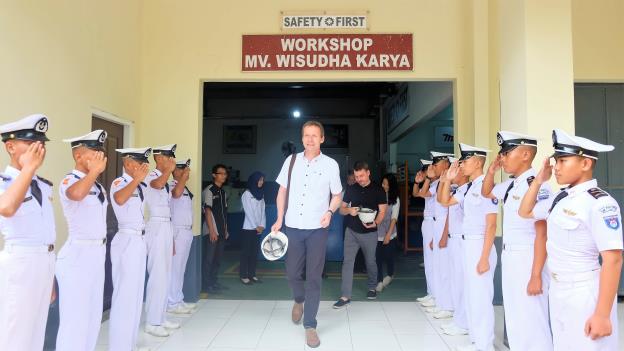
Even as an expatriate of Germany, globally lauded for its high-caliber vocational education and training system, Mr. Rainer Heufens from the Center for Indonesia Policy Studies was nonetheless captivated by the quality of the vocational school and the high discipline presented by students of maritime studies.
In choosing which majors to provide, Djarum Foundation has focused on 2 interrelated factors: demand-driven skills and the market salary for graduates. They first identified industries with a large demand for skilled labour within the next five to ten years, both locally and regionally.. Secondly, they pinpointed specific roles in these industries that could be filled by SMK graduates, but with starting salaries higher than that of the average higher education graduate in Indonesia. The aforementioned is one clear-cut way to avoid structural unemployment. Twelve majors spanning key industries have been chosen or created so far, including animation, mobile app and game development, nautical studies mechanical engineering and culinary arts.
2. Ensuring Teacher and Curriculum Quality: Involve Leading Industry and Educational Institutions
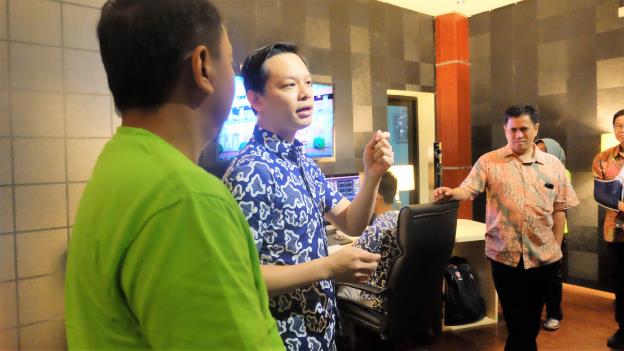
A dedicated mentor at the RUS Animation Studio explains his previous background as an industry professional and his current role teaching students and helping run the school’s industry unit.
Teachers and students are equipped with the necessary technical and soft skills pertaining to individual fields of study by learning from top-tier industry leaders and training institutes, including through short-term industry internships and attachments. For example, current mechanical engineering instructors were previously sent to ATMI Polytechnic Surakarta, renowned for its track record of producing skilled mechanical engineering graduates highly sought after by industry employers. To further polish their practical skills, they also completed internships at large Indonesian companies such as PT Pura Barutama, PT Polytron and PT Djarum. Meanwhile, educators and students across schools are mentored on a regular basis by industry professionals—and who wouldn’t be excited to get lessons from the likes of Disney’s Woody Woodman and world-renowned Indonesian chef William Wongso?
In addition to teacher and student training, Djarum Foundation also invites industry professionals to revise teaching content and curriculum for the selected majors according to actual industry needs and trends. The great irony in the Indonesian vocational education system is that most SMKs continue to churn out unemployable graduates year after year, even in cases where they offer fields of study in high-demand industries, due to the glaring gap between in-school learning and real-world industry expectations. As an illustration students in a typical “fashion design” vocational school spend three years learning how to sew and repair clothes and upon graduation are qualified to work as tailors or garment workers. In Kudus, however, with an enhanced curriculum by designers from Indonesian Fashion Chamber, fashion design students are instead taught various aspects of the fashion design business process, including creative design, material-sourcing, production and brand marketing. Consulting distinguished industrial players would ensure that learning is geared towards building in-demand competencies in their prospective students.
3. Professional School Facilities and Ambience
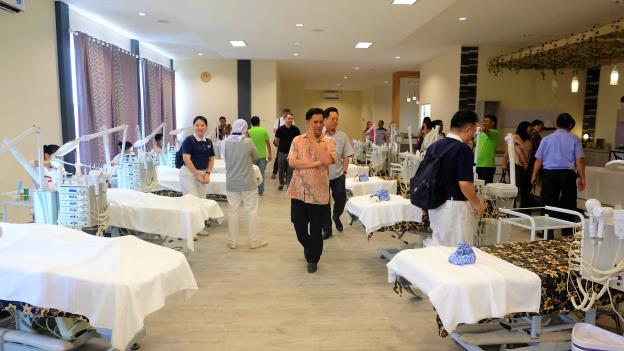
Looking around the spa treatment room, the vocational school for beauty and hospitality studies boasting first-rate equipment had the team mesmerised and in awe.
Djarum Foundation replicates real-life workspaces in their supported vocational schools in order to stimulate professionalism and self-confidence in practicing students. To further increase their motivation, students also don crisp uniforms that reflect their course of study.
With 60% of curriculum time being allocated solely for practical lessons, it is important to invest in modern learning tools and technology and productive spaces in order to instill quality technical skills in students. It is now evident that more than just being conducive, a school environment that is purposefully designed plays a major factor in preparing students to deftly take on the real world of work.
4.Teaching Factory Concept: Private Schools for the Low-Income
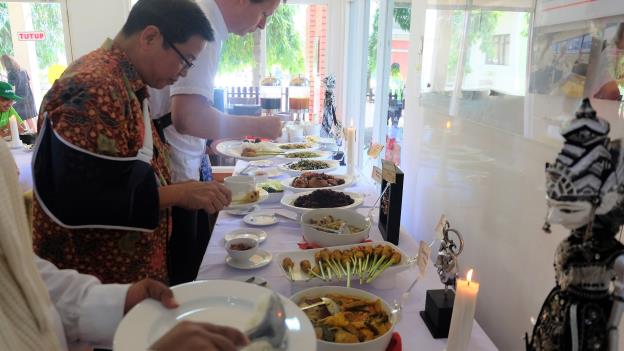
As expected from the wide array of delicious local dishes presented by the chefs from the vocational school of culinary arts, this restaurant is also open to the public and generates revenue.
In order to continuously benefit youths of Kudus year after year, great importance lies on the sustainability of the schools financially. To facilitate this, a business unit known as a Teaching Factory is incorporated above the usual school management system. After a certain level of training, students apply their skills in this school-based production unit to create products and services sold to the industry or to the general public. Beyond cultivating students’ skills and professional work ethic, profits made from these sales provide a source of supplementary funds to maintain and update equipment, pay market-rate teacher salaries, and enable teacher internships. Therefore, high-quality education can continue to be made available at affordable fees for low-income students, without having to rely on Djarum Foundation’s continuous funding.

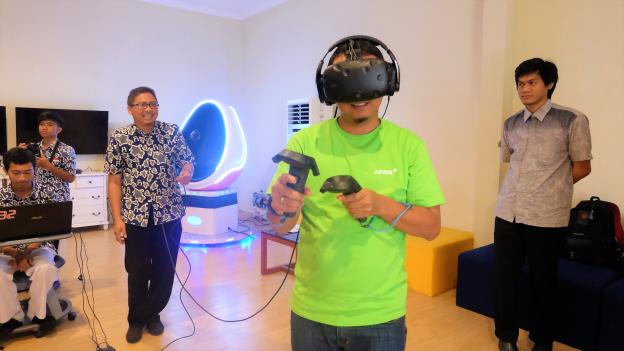
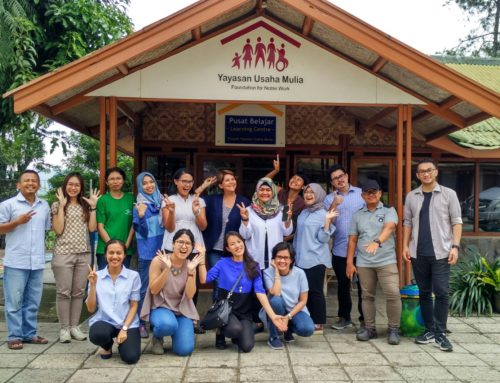
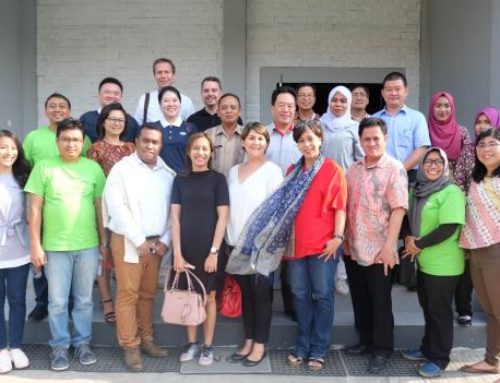
Leave A Comment
You must be logged in to post a comment.